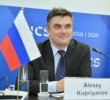Germany Scholz criticizes Musk over free speech extremism
Freedom of speech, a cornerstone of democratic societies, often finds itself at the crossroads of differing interpretations and political ideologies. German Chancellor Olaf Scholz has recently drawn attention to this delicate balance by asserting that free speech should not serve as a platform for promoting extreme-right views. Scholz’s remarks, made during the World Economic Forum in Davos on January 21, come in response to a series of controversies involving US billionaire Elon Musk, sparking debates about the boundaries of freedom of expression and its role in modern democracies.
In his Davos address, Scholz emphasized that while Germany and Europe value free speech, its misuse to bolster extreme-right ideologies is unacceptable. “We have the freedom of speech in Europe and in Germany. Everyone can say what he wants, even if he is a billionaire,” Scholz stated, as quoted by Reuters. However, he stressed that “what we do not accept is if this is supporting extreme-right positions.”
Scholz’s comments reflect Germany’s historical sensitivity to far-right ideologies, rooted in its efforts to combat neo-Nazism and safeguard democratic values. His remarks, however, are also tied to a more immediate controversy: Musk’s alleged Nazi salute during a celebration for former US President Donald Trump on January 20.
The incident that ignited the uproar occurred at the Capital One Arena in Washington, D.C., where Musk addressed a gathering of Trump supporters. During his speech, Musk reportedly placed his right hand over his heart and raised it at an angle, palm down and fingers together, a gesture that critics likened to a Nazi salute. Musk repeated the gesture while addressing the audience behind him, saying, “My heart goes out to........






















 Toi Staff
Toi Staff Tarik Cyril Amar
Tarik Cyril Amar Andrew Mitrovica
Andrew Mitrovica Sharona Margolin Halickman
Sharona Margolin Halickman Patrick Gathara
Patrick Gathara Belen Fernandez
Belen Fernandez Gideon Levy
Gideon Levy Alexey Kupriyanov
Alexey Kupriyanov
